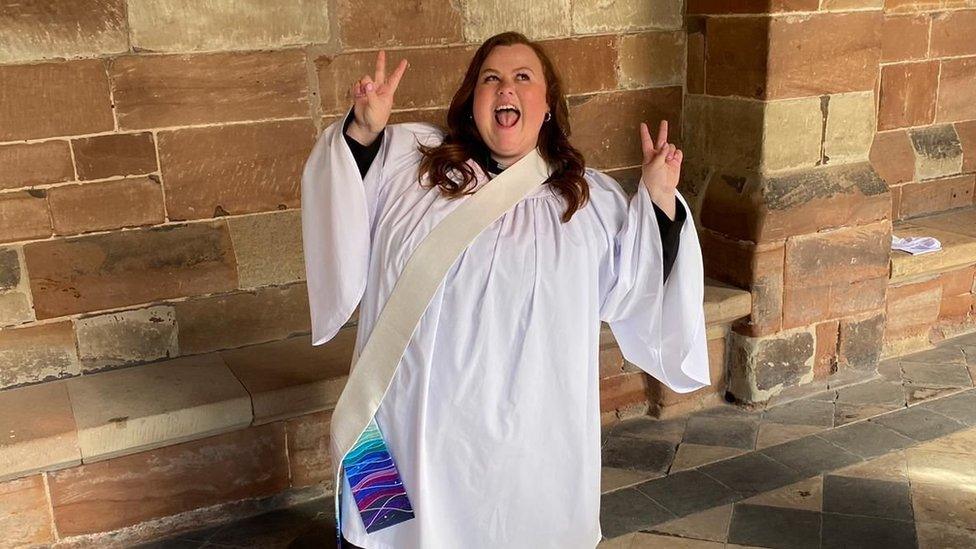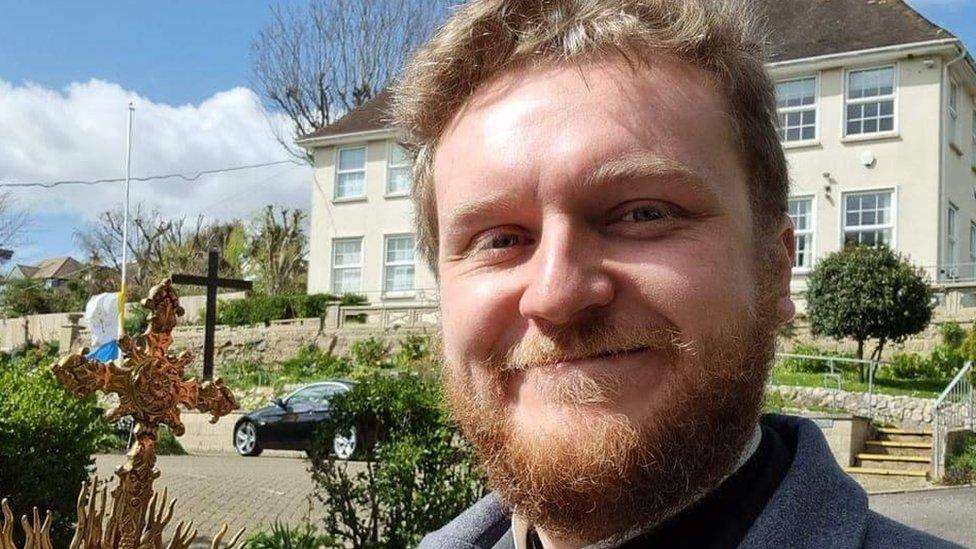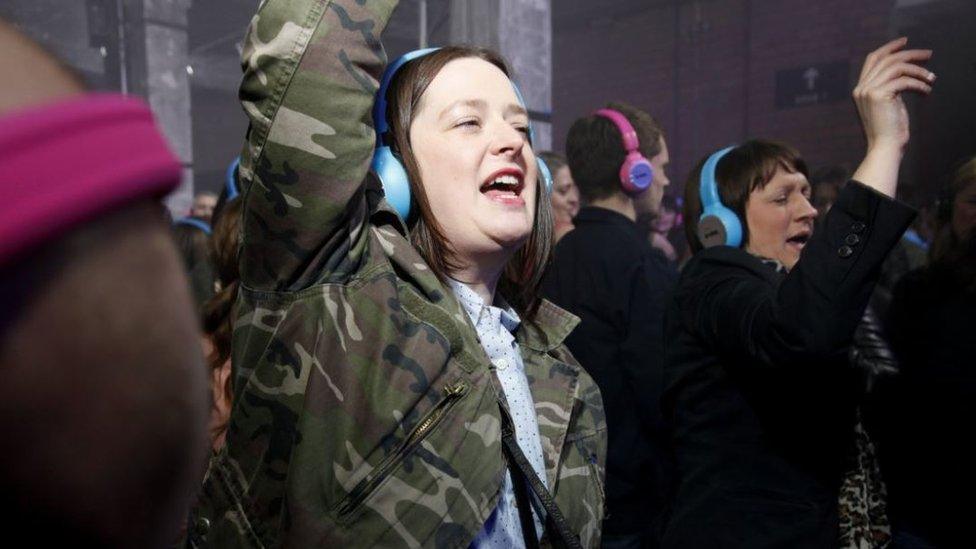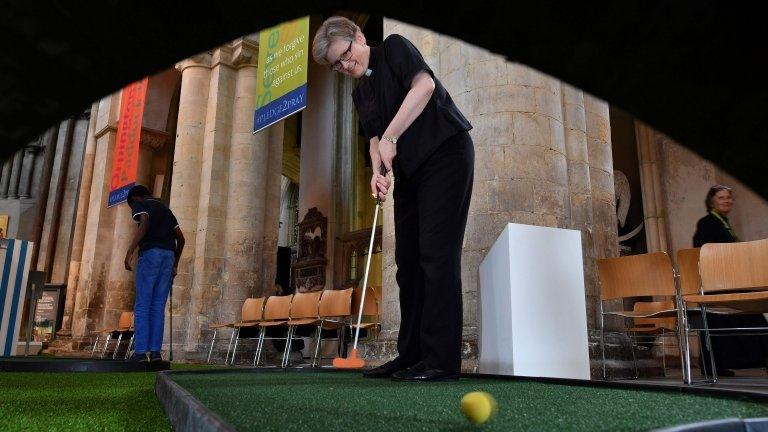Canterbury disco: 'Parties can get more people to visit church'
- Published

Nisha (left) says more churches and cathedrals should open their doors for parties
When you think of a church or cathedral, the thing that might come to mind is it being a place and time for self-reflection.
But lately there have been a series of silent discos taking place in cathedrals and historic buildings around the UK and Europe.
"I love the idea of people dancing on a Saturday night and praying on a Sunday morning. I think we can do both," the Reverend Jessica Fellows tells BBC Newsbeat.
The "disco-loving" vicar is a self-proclaimed Harry Styles fan who uses her church to organise silent discos as well as beer and carols events.
"The more the merrier. We need people to come in and have fun - it's not all boring and serious," she says.
She hopes these events can result in greater interest in religion, at a time of less interest.
In the 2021 census for England and Wales, a third of people under the age of 35 identified as Christian, compared to just under half of those under 35 in 2011.
Church of England figures also suggest dwindling congregation numbers, external, with 2022 having an average weekly attendance of 654,000 people - up from 2021 but down from 854,000 people in 2019.
"The church is meant to be a creative place," Jessica, from Worcester, says. "We think, how could we host more silent discos or places where people could connect?
"You never know, they might ask some big questions about who God is, and that's what I'd love to see happen."
'Churches as community spaces'
Canterbury Cathedral recently hosted 3,000 people at a silent disco.
"It was just brilliant," Nisha Capper tells Newsbeat.
"I never thought I'd be partying in the cathedral. Halfway through the night, I was doing the Macarena."
The 24-year-old feels more of these types of music events "would be great" for encouraging people to attend.
"I definitely think other, similar venues should do things like this.
"It brought new people, maybe even people that would never think of visiting [before]."

Rev Jessica Fellows is a Harry Styles fan and disco-loving vicar
But there has been criticism about churches and cathedrals opening up to host these events.
Almost 2,000 people signed a petition against the silent discos being held at cathedrals like Canterbury.
Petition organiser Cajetan Skowronski told BBC South East he was sceptical the events will get younger people into church.
"It will not bring young people closer to Christ, rather it will send the message that Christ and his church, and all the truth, beauty and goodness it has to offer, are unimportant.
"That entertainment deserves our attention more than God."
Before the Canterbury event, the Dean of the Cathedral, the Very Rev David Monteith, said the disco would be "appropriate and respectful".
Jessica agrees that it's important for events to be "done in a respectful way".
"And people understand the space they're in. It's all about having fun and using the space in different ways," she says.

Rev Michael Darkins says he's trying to use his churches more creatively to get more people in
Cathedrals and churches have also in the past tried to increase attendance by installing things like a crazy golf course - with Rochester Cathedral subsequently seeing more people attending services.
The Reverend Michael Darkins from Hythe, just down the road from Canterbury, has put on concerts at his church as well as Warhammer game nights.
"We've got this beautiful 11th century church… we're known locally for our collection of 1,200 skulls in the crypt - so it's the perfect aesthetic for that.
"Anything that helps people feel comfortable and welcome in these spaces is going to have a positive effect."
He feels these events are a good way of engaging the community.
"It's allowing people to come in and see the beauty of the space, to engage with the sacredness of it.
"And it's reawakening that sense of churches as being community spaces that they historically always have been."


- Published8 February 2024

- Published8 February 2024

- Published24 June 2020

- Published14 August 2019
